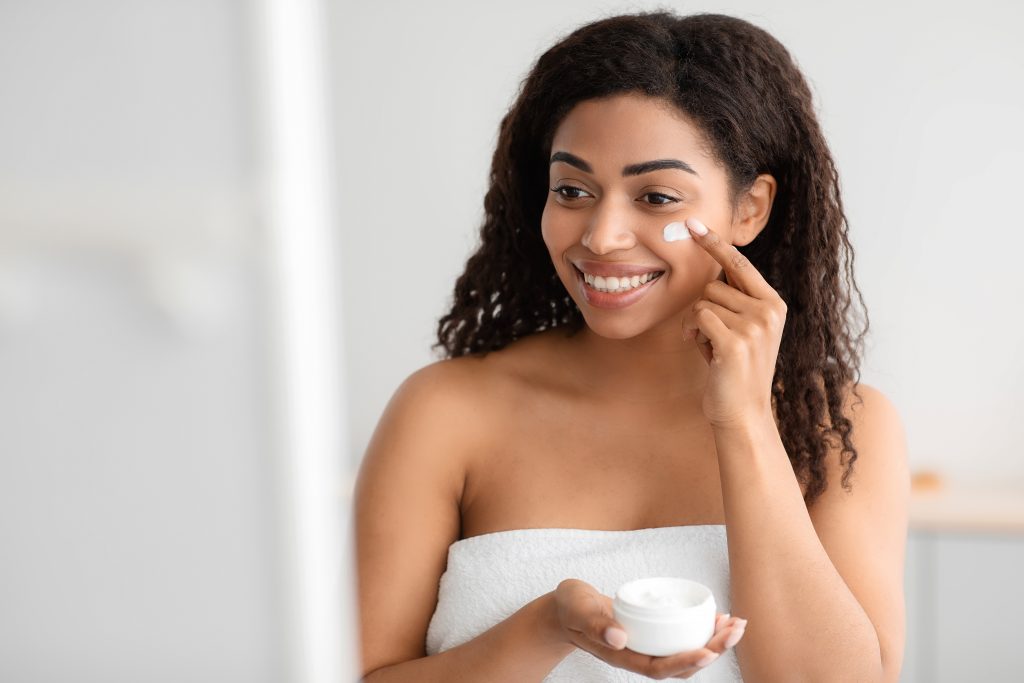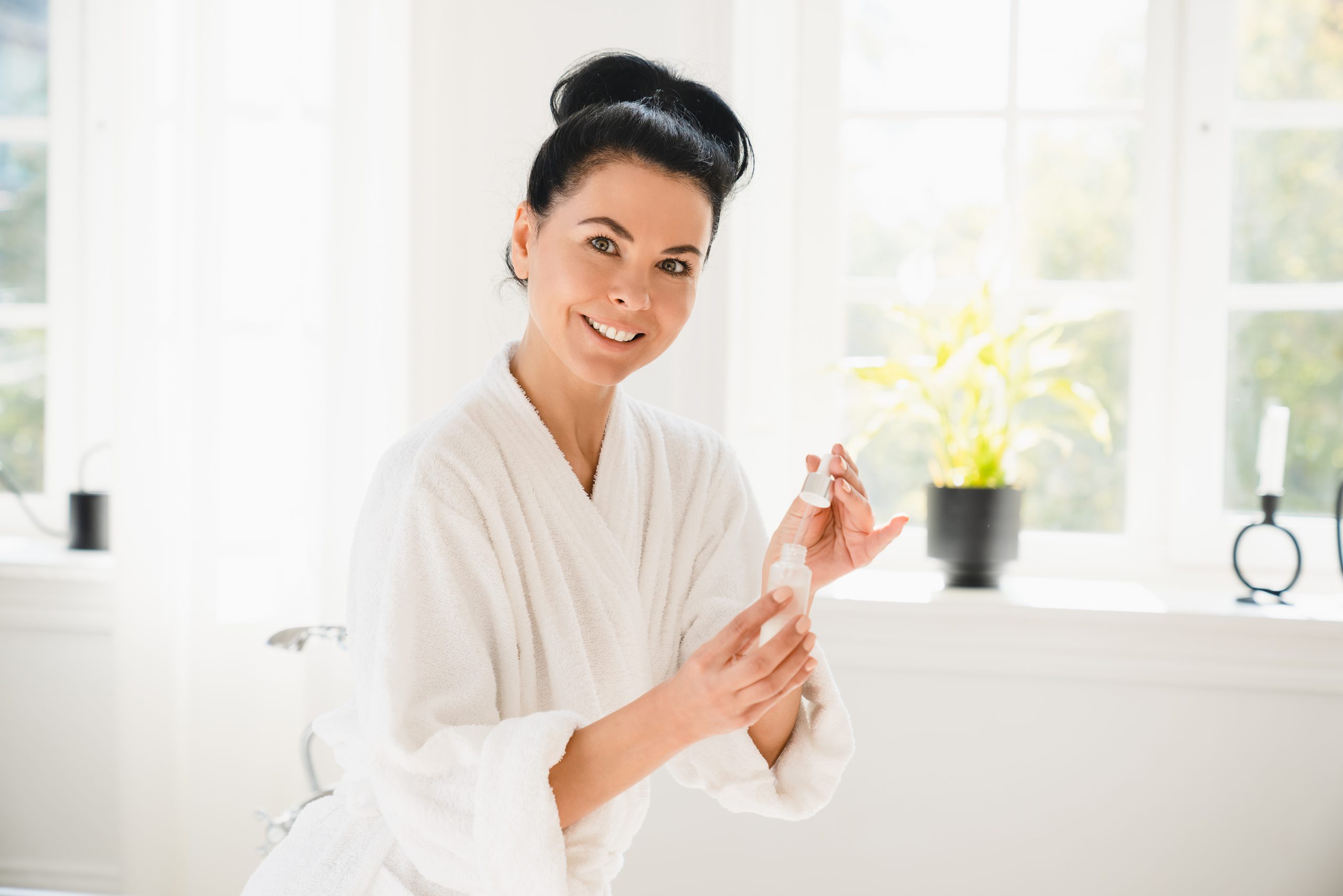Aging Gracefully: 5 Anti-Aging Strategies For A Healthy And Vibrant Life

For people who want to age naturally and keep a healthy, active life, understanding how skin ages is very important. Since the skin is the body’s biggest organ, it goes through a lot of changes as we age. These changes can be caused by both internal and external factors. Internal factors include genes and hormone levels. External factors include sun exposure, pollution, and living choices.
The effects of these things add up over time and cause changes in the skin’s structure parts, like collagen and elastin, which can show signs of aging. Less collagen production can make skin less flexible and tight, and less elastin can make lines and sagging more noticeable.
Also, things like less blood flow, damaged DNA, and problems with repair systems can make the aging process worse at the cellular level. People can make smart decisions to slow down or stop premature aging and keep their skin looking younger if they know how these things affect skin aging.
1. Physical Activity
Being physically active is an important part of getting older and has many health and well-being benefits. Regular exercise can make a big difference in your balance, movement, happiness, and brain power. It can also help you deal with chronic diseases that come with getting older.
Getting regular exercise is important for keeping and improving your balance, which is something that becomes more important as we age. It gets your muscles stronger and your balance better, which makes you less likely to trip and hurt yourself. By doing balance-building activities like yoga or tai chi, people can improve their general physical function and steadiness.
In addition, being active is good for your mental and emotional health. Endorphins are “feel-good” hormones that are released when you do this. They can help lower stress, anxiety, and sadness signs. It has also been shown that regular exercise has a big impact on brain performance, making memory, attention span, and thinking speed better.
Physical exercise can also help you deal with long-term diseases that come with getting older, like diabetes, heart disease, high blood pressure, cancer, and osteoporosis. Regular exercise can help keep blood sugar under control, lower blood pressure, lower the chance of some cancers, and improve bone health by making bones stronger and more dense.
2. Nutrition and Supplements
For good age, it’s important to eat a varied diet full of nutrients your body needs. Good diet is very important for keeping the immune system strong, fighting toxic stress, and boosting general health.
Eating a variety of healthy foods that are high in vitamins, minerals, and antioxidants can be very good for you in many ways. These nutrients help the immune system work better, which keeps you from getting infections and diseases that come with getting older. In particular, antioxidants are very important for getting rid of dangerous free radicals and preventing cell damage. This is good for skin health because antioxidants help keep skin’s flexibility and structure, which stops it from aging too quickly and getting age spots.
Additionally, important nutrients such as protein, healthy fats, and carbs are necessary to keep muscles working well, skin healthy, and energy levels high. Protein helps cells heal and grow back, boosts collagen production, and keeps skin flexible and looking young. Healthy fats, like omega-3 fatty acids, which are found in nuts and fatty fish, help keep your heart healthy and your brain healthy. Carbohydrates give you energy and can help keep your blood sugar levels in check.
A healthy, well-balanced diet is the best way to get all the nutrients you need, but some people may need supplements if they can’t eat certain foods or aren’t getting enough of certain nutrients. Talking to a doctor or nurse before starting any vitamin plan is important to make sure you get the right amount and are suitable for your needs.
3. Stress Management
Managing your stress is an important part of getting older in a good way. Stress that lasts for a long time can hurt your mental and physical health, making you more likely to get chronic diseases and lowering your quality of life. Luckily, there are many ways to deal with stress that can help people feel better generally and lower their stress levels.
Deep breathing is an effective way to deal with worry. The body’s calm reaction can be set off by taking slow, deep breaths. This can lower blood pressure and heart rate. This method can be used anywhere and at any time, which makes it easy to use every day to relieve stress.
Meditation is another activity that can help you deal with stress. Meditation can help you relax and feel less stressed by focusing your attention and quieting your mind. Regular meditating has been shown to improve mental health, make people more self-aware, and make them feel better generally.
Getting regular exercise is another great way to deal with stress. Endorphins are natural chemicals that make you feel good. They are released when you exercise. Exercise can also help you sleep better, give you more energy, and lower your stress and sadness.
Finally, writing in a book can help you deal with stress. Writing down your feelings and thoughts can help you feel better and more in control. Writing in a journal can also help people figure out what stresses them out and how to deal with it.
4. Sun Protection and Skin Care Habits
Protecting your skin from the sun and taking care of it properly are important ways to delay the aging process. When you stay out in the sun for a long time, it can damage your collagen and elastin fibers and cause lines and age spots. UV rays from the sun can get through the skin and hurt the connective tissue, which can change the structure and flexibility of the skin. Fine lines, wrinkles, and drooping skin show up because of this. UV rays can also cause melanin to be made, which can cause age spots and uneven skin tone.
To stop these effects, you should make protecting yourself from the sun a daily habit. Broad-spectrum sunscreen with at least SPF 30 can help protect your skin from UV rays. Sunscreen should be put on liberally and again every two hours, especially if you will be outside for a long time. Putting on safety gear like hats and sunglasses can also help keep you safe.
In addition to protecting the skin from the sun, some ingredients in skin care products can help keep the skin looking young. Retinol is a type of vitamin A that speeds up the turnover of cells and the production of collagen. This makes lines less noticeable and improves the structure of the skin. Vitamin C is a strong antioxidant that helps protect skin from damage caused by free radicals and makes the skin look better.
5. Mindful Living
One strong way to age naturally and keep a healthy, active life is to practice awareness and be in the present moment. Being mindful means paying attention to our thoughts, feelings, and surroundings. This can help us feel less stressed and better mentally.
Mindfulness techniques, like meditation, can help calm the mind and make you feel at peace with yourself. Spending a few minutes a day in silence and focusing on your breath can help you feel much less stressed and more relaxed. As well as improving general health, doing self-care activities like taking a bath or having a sport can give you a much-needed break from the stresses of daily life.
Another important part of living an aware life is practicing thanks. We can shift our attention from what we don’t have to what we do have by taking time every day to recognize and enjoy the good things in our lives. Being thankful can make us feel better about life in general and improve our mental and emotional health.
Being careful about what you eat can also help you age in a gentle way. To stay healthy and avoid overeating, pay attention to your hunger and energy signals, enjoy every bite, and choose foods that are high in nutrients. We can improve our quality of life even more by doing things that make us happy and satisfied, like spending time in nature, being artistic, or spending time with people we care about.

Conclusion
Finally, using these tips for gently aging can have a big effect on our health and quality of life as a whole. Being aware and in the present moment can help us feel less stressed and better about our mental health. Other things that can improve our general health and help us live a healthy, full life are practicing thanks and taking care of ourselves.
Also, practicing mindful eating and doing things that make you happy and fulfilled can help you stay healthy and stop you from overeating. To get the most out of gentle age, we need to make these tips a priority and include them in our daily lives. We can feel more alive and enjoy life to the fullest if we take care of our physical, mental, and social health.








